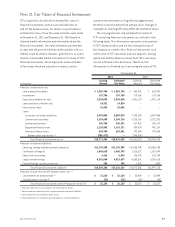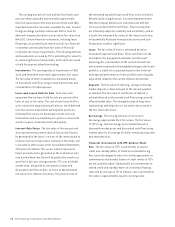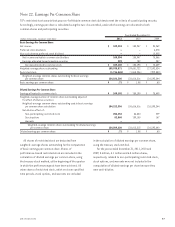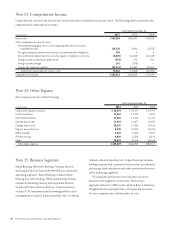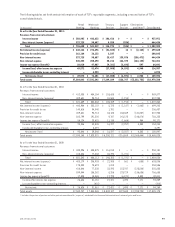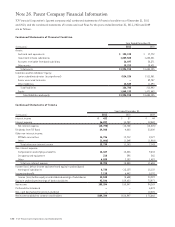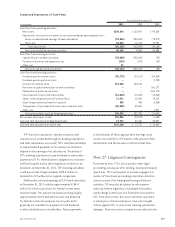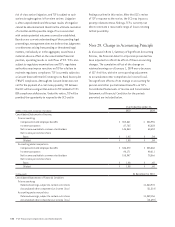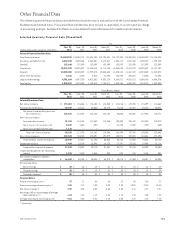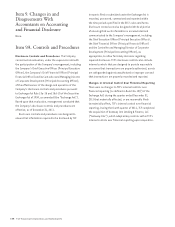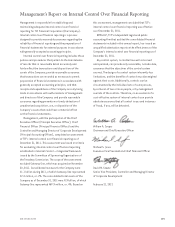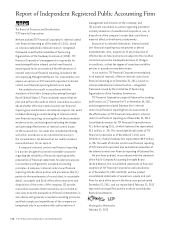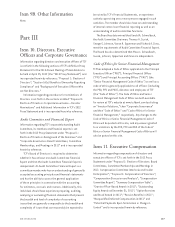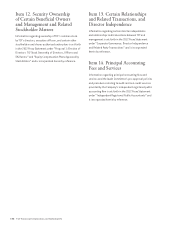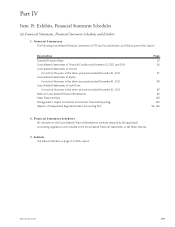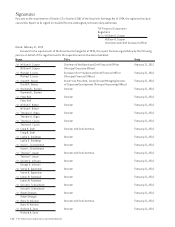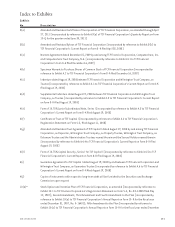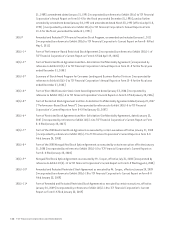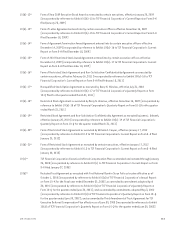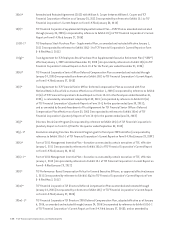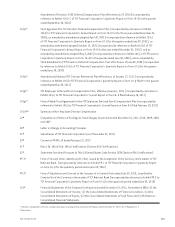TCF Bank 2011 Annual Report Download - page 123
Download and view the complete annual report
Please find page 123 of the 2011 TCF Bank annual report below. You can navigate through the pages in the report by either clicking on the pages listed below, or by using the keyword search tool below to find specific information within the annual report.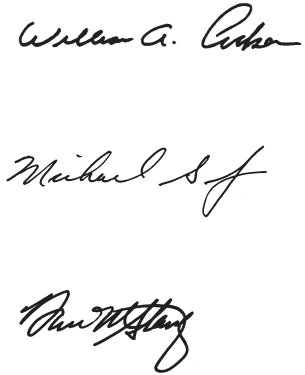
Management’s Report on Internal Control Over Financial Reporting
Management is responsible for establishing and
maintaining adequate internal control over financial
reporting for TCF Financial Corporation (the Company).
Internal control over financial reporting is a process
designed to provide reasonable assurance regarding the
reliability of financial reporting and the preparation of
financial statements for external purposes in accordance
with generally accepted accounting principles.
Internal control over financial reporting includes those
policies and procedures that pertain to the maintenance
of records that in reasonable detail accurately and
fairly reflect the transactions and dispositions of the
assets of the Company; provide reasonable assurance
that transactions are recorded as necessary to permit
preparation of financial statements in accordance with
generally accepted accounting principles, and that
receipts and expenditures of the Company are only being
made in accordance with authorizations of management
and directors of the Company; and provide reasonable
assurance regarding prevention or timely detection of
unauthorized acquisition, use, or disposition of the
Company’s assets that could have a material effect
on the financial statements.
Management, with the participation of the Chief
Executive Officer (Principal Executive Officer), Chief
Financial Officer (Principal Financial Officer) and the
Controller and Managing Director of Corporate Development
(Principal Accounting Officer), completed an assessment
of TCF’s internal control over financial reporting as of
December 31, 2011. This assessment was based on criteria
for evaluating internal control over financial reporting
established in Internal Control — Integrated Framework
issued by the Committee of Sponsoring Organizations of
the Treadway Commission. The scope of the assessment
excluded Gateway One, which was acquired on November
30, 2011. Consolidated revenues for the Company were
$1.1 billion during 2011, of which Gateway One represented
$2.2 million, or .2%. The consolidated total assets of the
Company as of December 31, 2011 were $19 billion, of which
Gateway One represented $69.9 million, or .4%. Based on
this assessment, management concluded that TCF’s
internal control over financial reporting was effective
as of December 31, 2011.
KPMG LLP, TCF’s independent registered public
accounting firm that audited the consolidated financial
statements included in this annual report, has issued an
unqualified attestation report on the effectiveness of the
Company’s internal control over financial reporting as of
December 31, 2011.
Any control system, no matter how well conceived
and operated, can provide only reasonable, not absolute,
assurance that the objectives of the control system
are met. The design of a control system inherently has
limitations, and the benefits of controls must be weighed
against their costs. Additionally, controls can be
circumvented by the individual acts of some persons,
by collusion of two or more people, or by management
override of the controls. Therefore, no assessment of a
cost-effective system of internal controls can provide
absolute assurance that all control issues and instances
of fraud, if any, will be detected.
William A. Cooper
Chairman and Chief Executive Officer
Michael S. Jones
Executive Vice President and Chief Financial Officer
David M. Stautz
Senior Vice President, Controller and Managing Director
of Corporate Development
February 21, 2012
1052011 Form 10-K


